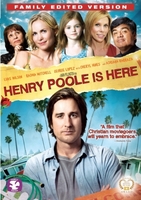 An article published in February in the international, peer-reviewed Journal of Medical Ethics is making headlines around the world. In the article, former Cambridge and Oxford University researchers Dr. Alberto Giubilini and Dr. Francesca Minerva argue the very point pro-life advocates have said all along: There is no essential difference between a fetus and a newborn, and their moral status is the same.
An article published in February in the international, peer-reviewed Journal of Medical Ethics is making headlines around the world. In the article, former Cambridge and Oxford University researchers Dr. Alberto Giubilini and Dr. Francesca Minerva argue the very point pro-life advocates have said all along: There is no essential difference between a fetus and a newborn, and their moral status is the same.
Pro-life supporters should be elated.
But we’re not.
In claiming that unborn children and newborn children are morally equivalent, Giubilini and Minerva are not arguing for the right to life. To the contrary, the article advocates what the authors term “after-birth abortion.” The British tabloid The Sun put it a bit more starkly in a headline last week: “Slaughter Newborn Kids, Say Academics.” The Telegraph‘s headline sums it up this way: “Killing Babies Is No Different From Abortion.”
If a newborn will place an “unbearable burden” on the family or society (such as in the case of disability), the researchers argue, the infant should be subject to an after-birth abortion. “Merely being human,” they claim, “is not in itself a reason for ascribing someone a right to life.”
Not surprisingly (and thankfully), the article has garnered vehement backlash from across the globe, particularly in the blogosphere. (Sadly, some of those claiming to defend life have resorted to less-than-ethical responses to the article, even to the point of death threats.)
The journal’s editor has defended the decision to publish the article, but not merely on the usual grounds of academic freedom. Instead, noting that infanticide is legal in the Netherlands, the editor argues that publishing the article reflects the journal’s support of “sound rational argument and freedom of ethical expression.” The editor explains, “The authors provocatively argue that there is no moral difference between a fetus and a newborn. Their capacities are relevantly similar. If abortion is permissible, infanticide should be permissible. The authors proceed logically from premises which many people accept to a conclusion that many of those people would reject.”
It’s hard to dispute such sound logic, as a blog at the British newspaper The Telegraphpoints out. The article is so extremely logical, in fact, that it’s reminiscent of Jonathan Swift’s famous 18th-century satire, A Modest Proposal. The “proposal” offers an utterly rational appeal to the Irish to alleviate their poverty by raising and selling their children to the English for food. Like the journal article under discussion, the reasoning is impeccable. However, chief among the satire’s many objects of correction (for correction is the purpose of true satire) is rationalism, a worldview that depends entirely—like the journal article—on human reason at the expense of human emotion, human spirit, and human love—let alone eternal principles that transcend even these.
After pointing out the unassailable logic of the after-birth abortion argument, The Telegraph blog goes on to say that the article may provide a “boost” to the pro-life movement. Indeed, the journal article is so over-the-top, one wonders if it might not have been written by covert pro-life advocates whose true views (a la Swift) are, in a move of sheer irony, opposite the ones stated.
Nevertheless, a boost to the pro-life movement couldn’t come at a better time. Attempts at state legislation on abortion around the time of the article’s publication became rallying points for pro-choice advocates as well as fodder for national jokes, to the point of calling into question the vice presidential potential of Virginia Governor Bob McDonnell. My own recent discussions on the subject inevitably degenerated toward impasse simply because, as always, just about any conclusion on any abortion-related issue ultimately comes down to one’s position on the status of the unborn human life. If in any debate we are talking about a baby not essentially unlike the one grandma jostles on her knee, one conclusion seems clear; if we are talking about something less than, just about anything is apparently possible—as the after-birth abortion article clearly demonstrates.
Of course, as the journal’s editor notes, after-birth abortion isn’t really new: “The arguments presented, in fact, are largely not new and have been presented repeatedly in the academic literature and public fora by the most eminent philosophers and bioethicists in the world, including Peter Singer, Michael Tooley, and John Harris in defence of infanticide.” And let’s not forget that the ancient Greeks left their unwanted children on the mountainside to die, too, Mr. Editor.
This makes it even more noteworthy that the article concedes that a fetus is, in fact, a human being: “Both a foetus and a newborn certainly are human beings and potential persons, but neither is a ‘person’ in the sense of ‘subject of a moral right to life’.” They go on to argue that “the interests of actual people override the interest of merely potential people. Since non-persons have no moral rights to life, there are no reasons for banning after-birth abortions.”
Such language makes more justifiable recent attempts to define “personhood” to include unborn children. Personhood legislation was defeated last November in Mississippi and before that in Colorado, but renewed attempts are ongoing in several states, including in Wisconsin and Oklahoma. Attempts in Utah and Virginia have been dropped. (Oddly, corporations in the United States have long enjoyed legal personhood status.)
Yet even among pro-life advocates, views on personhood legislation are not uniform. The practical and political ramifications of passing constitutional amendments defining a “person” as “every human being from the moment of fertilization, cloning or the functional equivalent thereof” are not entirely clear. Some who favor other efforts restricting abortion say such laws are silly or symbolic at best, sloppy or dangerous at worst. This may be true.
But it’s also true that symbols are important. Symbols have power. None should recognize this more than we of a faith in which our symbols bleed over into substance. But when legalized abortion turns into an argument for killing newborns, any debate about symbol vs. substance is dead in the water.
A few movies recently released to DVD that Christian audiences might want to check out:
> Journey Films (Bonhoeffer, The Power of Forgiveness) has released Albert Schweitzer: Called to Africa, which it is billing as “the compelling story of a theologian, musician and philosopher who abandoned a life of fame and comfort in Europe at the age of 30 to dedicate his life to the medical care of Africans.” (See the trailer here.)
> Sherwood Baptist (Fireproof, Facing the Giants) isn’t the only church in the movie-making business. Others are also making their own films, including Bethesda Baptist Church of Brownsburg, IN, which recently released The Board to DVD. A press release says the film “captures the elements of life transforming films such as Chariots of Fire and Fireproof, telling the poignant story of how God speaks to each person’s soul. The Board explores the personal conflicts within, as represented by a board of directors, Mind, Emotion, Will, Memory, Conscience and Heart as it introduces difficult questions that lead to eternal consequences, exposing the board’s hypocritical foundation.” (See the trailer here.)
 What would happen if Elizabeth Gilbert of Eat, Pray, Love fame had three children, settled in France instead of Italy, then read Amy “Tiger Mom” Chua‘s diatribe against American parenting with both horror and assent, and sat down to pen her own book? You’d have something akin to the new “it” book about parenting, Bringing up Bébé: One American Mother Discovers the Wisdom of French Parenting, by Pamela Druckerman. It smacks of an attempted repeat run to the bank exploiting American’s parental insecurity with another foreign-mothers-are-better book. (And in defense of my own cynicism, all three books share the same publisher.)
What would happen if Elizabeth Gilbert of Eat, Pray, Love fame had three children, settled in France instead of Italy, then read Amy “Tiger Mom” Chua‘s diatribe against American parenting with both horror and assent, and sat down to pen her own book? You’d have something akin to the new “it” book about parenting, Bringing up Bébé: One American Mother Discovers the Wisdom of French Parenting, by Pamela Druckerman. It smacks of an attempted repeat run to the bank exploiting American’s parental insecurity with another foreign-mothers-are-better book. (And in defense of my own cynicism, all three books share the same publisher.)
There’s much in this book to critique. The style is annoyingly chatty, the evidence for both her allegations and her adulation largely anecdotal. There’s more fault to find, but this book, though sans mention of God or any spiritual reality beyond the material, raises an essential question that matters to parenting women of faith.
But first, for those who haven’t read it, here’s what you need to know. Druckerman, a former writer for The Wall Street Journal, moves to Paris with her British boyfriend and daughter, has twins, and while immersed in early motherhood notices an ocean of difference between French and American parents and parenting styles. The French are, simply put, calm and relaxed. Their children don’t act up in public. They happily eat every kind of vegetable. Babies don’t throw food from high chairs. They learn to sleep through the night by three months. French mothers don’t gain much weight while pregnant, regaining their skinny, sexy figures soon after. They don’t breastfeed or stay home with their kids. They put their babies in all day state-run daycare with anticipation rather than guilt. They maintain their parental authority at all times, but give their children freedom within a few simple, enforced rules. And many more feats besides: Vive la France! How do they do it?
American parents, well, just aren’t as clever or capable. American mothers give up sexy clothes and stilettos and don sneakers, diaper bags, and extra weight. Parents readily sacrifice their own schedules and pleasures for the betterment of their offspring. Many approach childrearing as a project or a race, speeding their child through her developmental stages as though toward a finish line. This hypermanagement and overscheduling yields guilt-ridden, anxious, and exhausted parents. The children are worse: demanding, spoiled, and rude. They don’t eat their vegetables or sleep through the night until they’re a year old. Quelle diffférence!
Druckerman is clearly over-dazzled by the French, but she does have a point—or, several points. Who doesn’t get annoyed with badly behaved American children, and doesn’t it seem that there are a lot of them? Who hasn’t been squeamish around mothers infantilized by their children, who slavishly attend to their child’s every want and need? And we all know parents with racing stripes on their diaper bags. (Christian parents are not off the hook here; In fact, I believe they’re more likely to engage in these excesses than any other group of parents.)
But Druckerman’s solutions can be exasperating. After all, who wouldn’t be calmer with state-subsidized 8 am-6pm daycare, where most women park their infants soon after birth? Life indeed would be quieter if we felt no obligation to play with our children at the park but sat at an adjacent café sipping crème lattes while they played. American mothers would indeed be more relaxed if they created a lifestyle and a culture that banished mother-guilt entirely.
To bridge the gap, Druckerman explains these behaviors: “What fortifies them is the belief that it is unhealthy for mothers and children to spend all their time together. They dread the risk of developing a relation fusionnelle, where the needs of both are too intertwined.”
If the author has aptly characterized the French, then they are right about this essential point: Parents should not attempt to be the be-all, end-all in their children’s lives. As I’ve stated elsewhere, parenting is not our highest calling. Such beliefs are often unhealthy for both parent and child, no matter the age of either. And this belief is partly to blame for some of the excesses of American over-parenting. But the efforts to ameliorate the intensity, sacrifice, and humble labor of child-rearing with a return to full-time work soon after birth, all-day daycare, and an unyielding grip on grown-up freedom and pleasure, is hard to adulate. Parenting is not our highest calling—but neither is work, or our own wants and pleasures.
The most common Christian response to the intensity of parenting has been to heighten and valorize it with a theology that lays the primary burden of producing children who were smart, successful, and most of all, saved and godly, at the feet of mothers. To get this done, mothers need to spend as much time as possible with their children, until the current expectation in some circles that Christian mothers spend virtually all their waking hours with their kids. For some Christian parents, a relation fusionnelle is not the fear but the goal of parenting.
Both sides err. The corrective to the stresses and anxiety of parenting is not diluting our commitment to our children with a greater commitment to ourselves and to the workplace. Nor is it distorting Scripture to teach women that their exhaustion is for the best of all causes: the saving of their children’s souls. The corrective is real wisdom, found in the first commandment: to love God first, above all others. Here is relief, hope, rest, wisdom, and the ability to love our children—and ourselves—with God’s own love and grace. Here is a way forward that teaches us to treasure the fleeting hours of childhood without idolizing either our children or our mothering.
Bringing up Bébé will not take you there. But you’ll find some amusement and enlightenment in Druckerman’s struggles, and you’ll learn a little French along the way. Pourquoi pas?
Leslie Leyland Fields is the author of seven books, including Parenting Is Your Highest Calling … and Eight Other Myths. She is a columnist for Christianity Today, a mother of six, and lives in Kodiak, Alaska.
> A “family version” of Henry Poole Is Here – one of my favorite indie films from 2008 – will be available Sept. from Anchor Bay Entertainment. The original PG version had some mild language, so there wasn’t that much to edit in the first place, but if this means more people will see this gem, that’s a good thing.
> The Biblical Dinner, self-described as “a Last Supper documentary,” is now available on DVD.
> Christian music star Rebecca St. James has been doing a bit of acting lately. She plays the lead role in a pro-life film called Sarah’s Choice, slated to release in November from PureFlix. She also recently wrapped filming in the comedy RisingStars, a take-off on American Idol.
> The second in the Nomad Reality Films series, The Great Reverse, will be available Sept. 15 through INO Records/Provident-Integrity. The film follows nine young missionaries in their travels through west Africa. The first in the series was a documentary on Christian musician Sara Groves.








